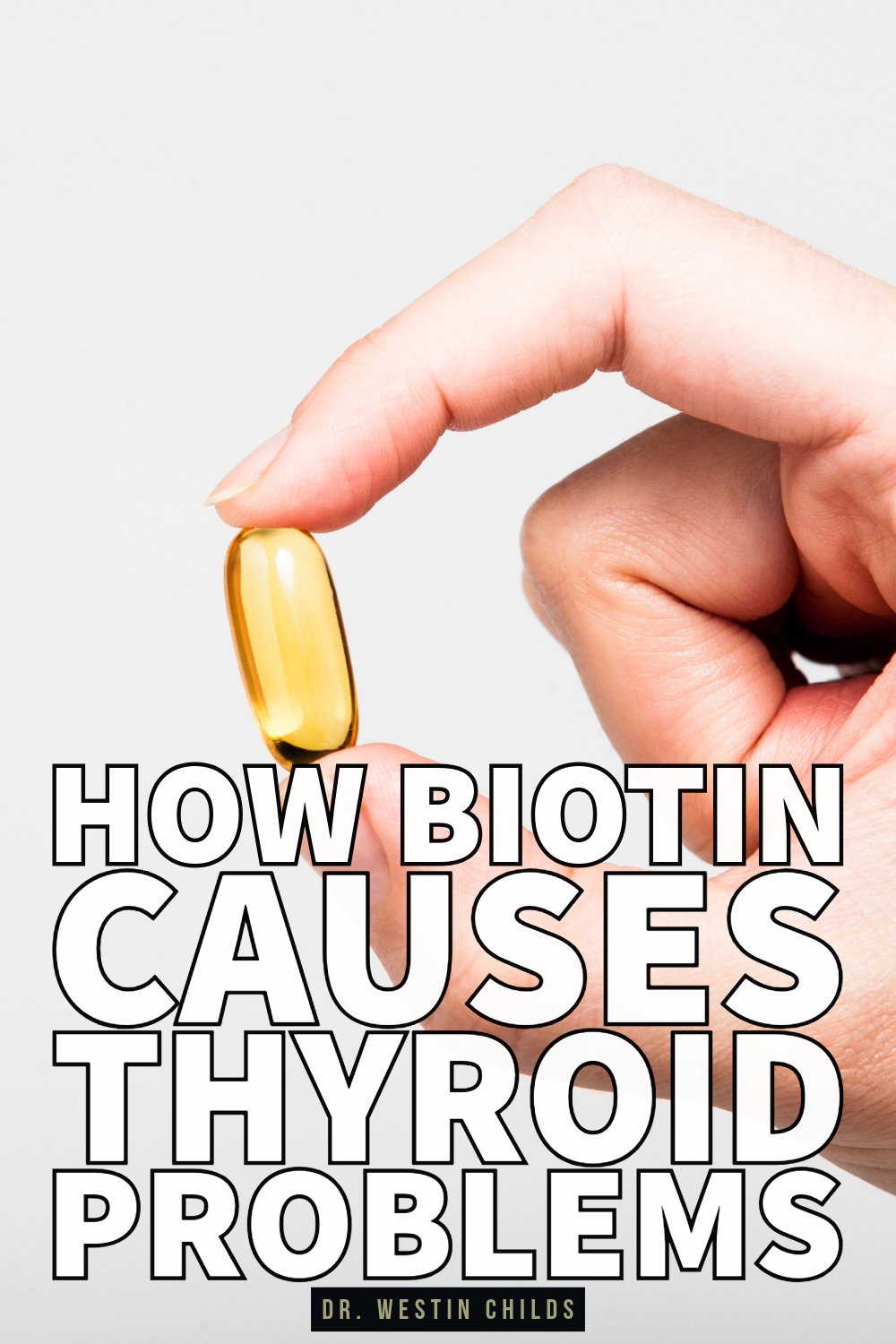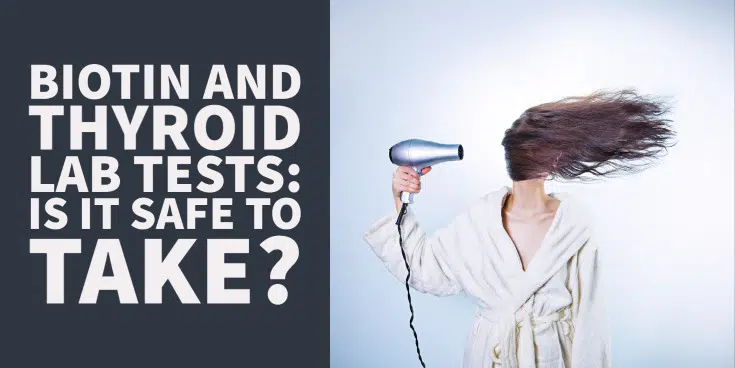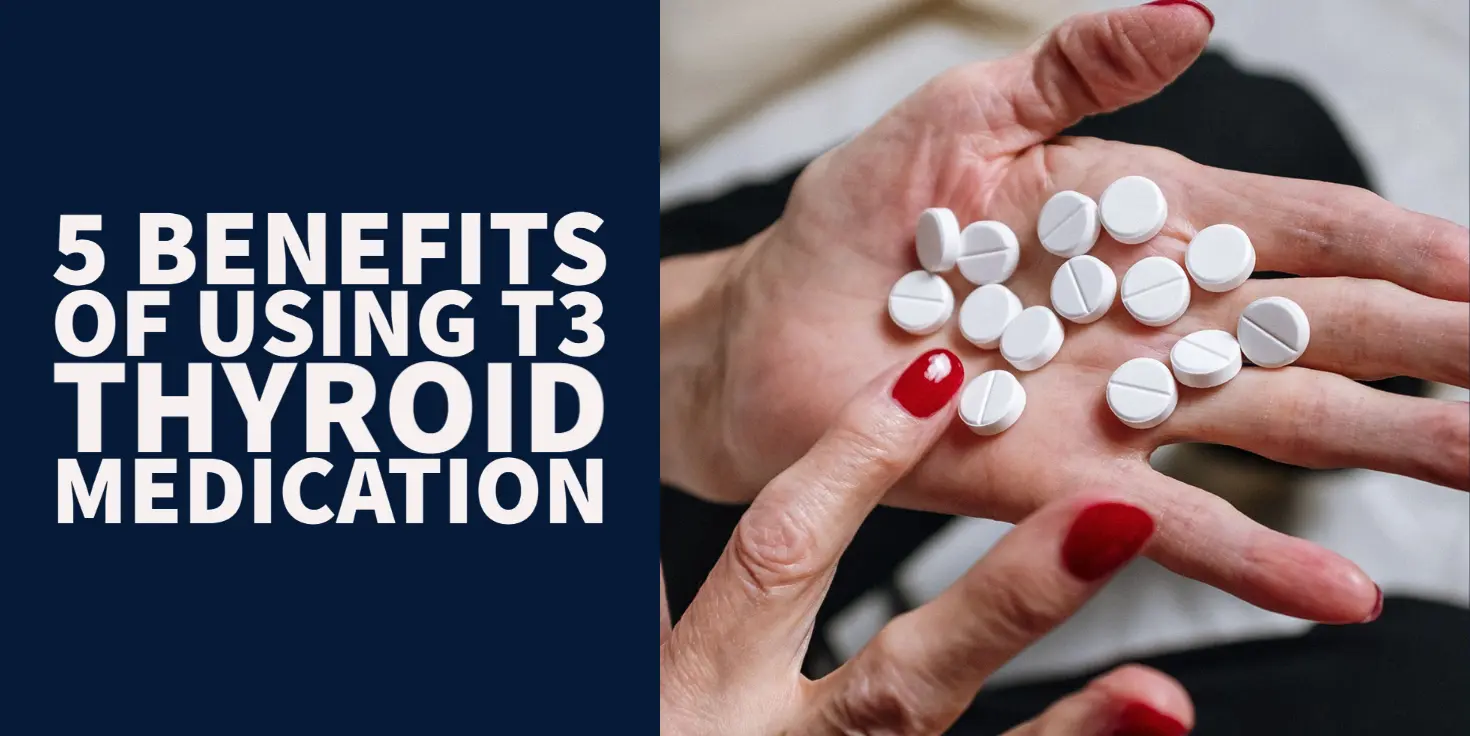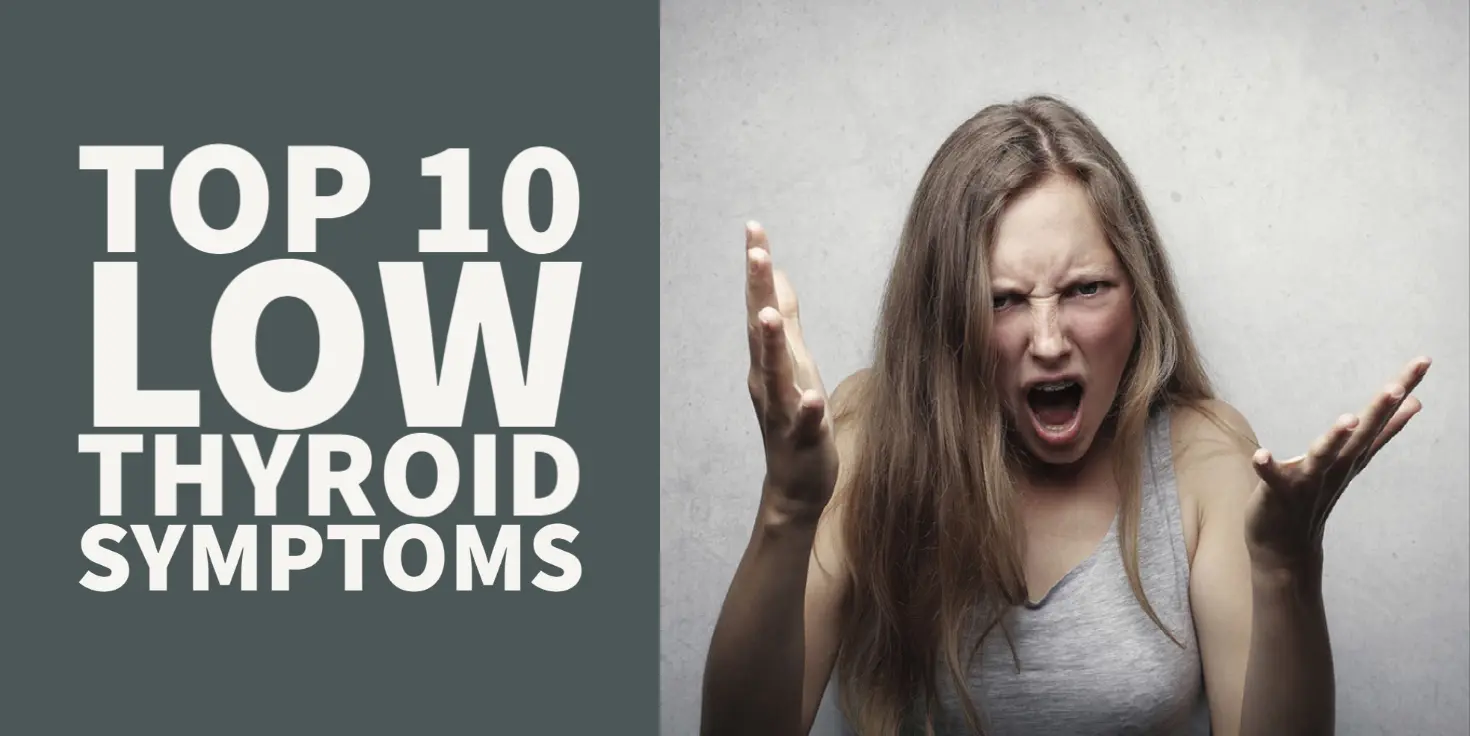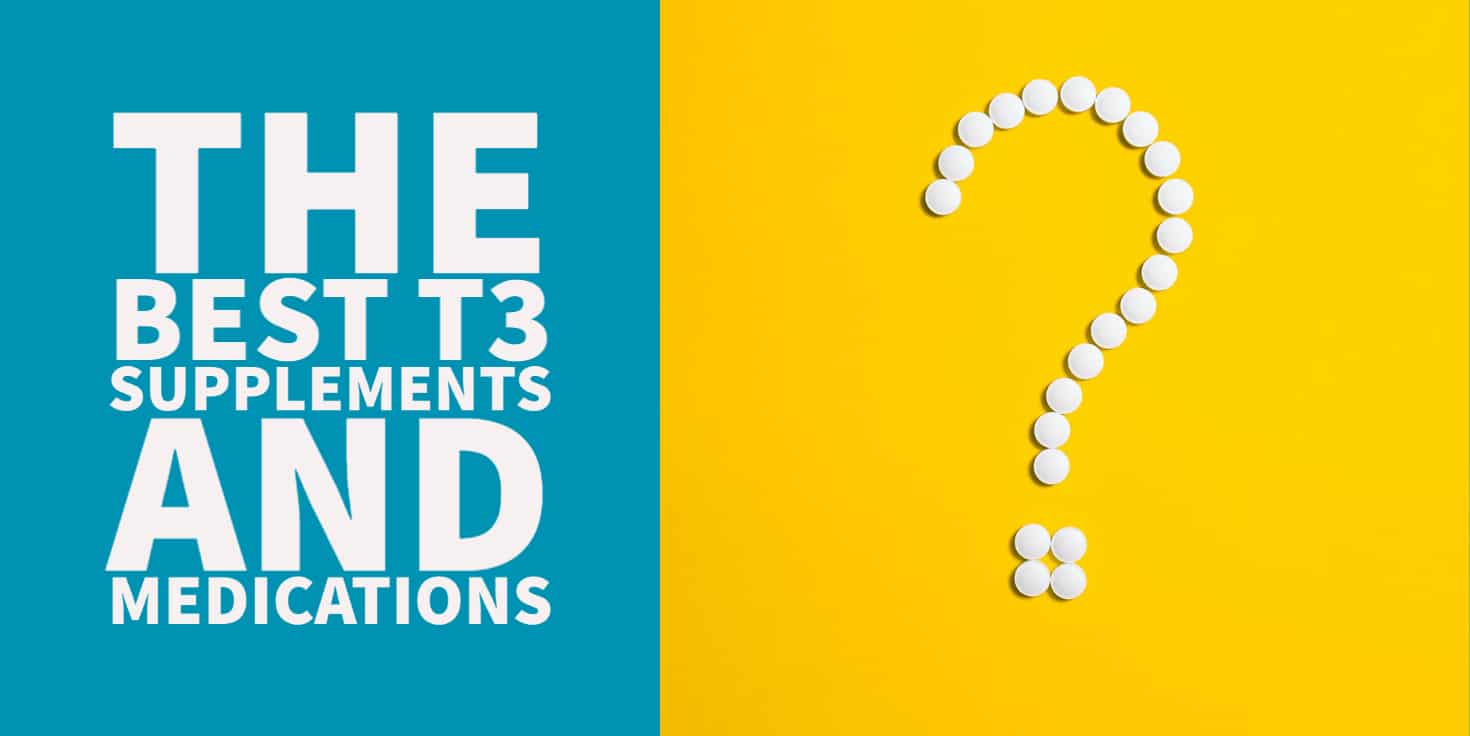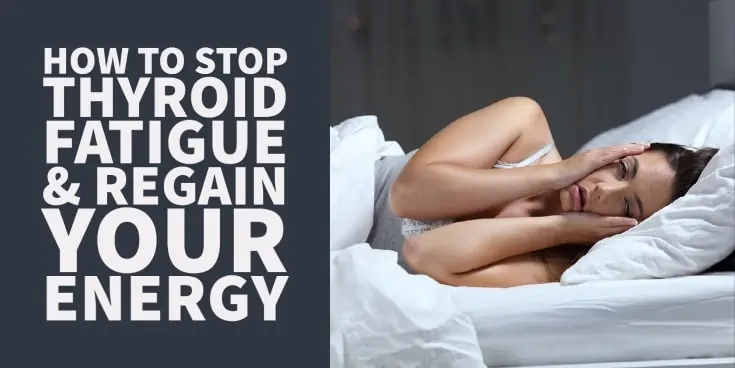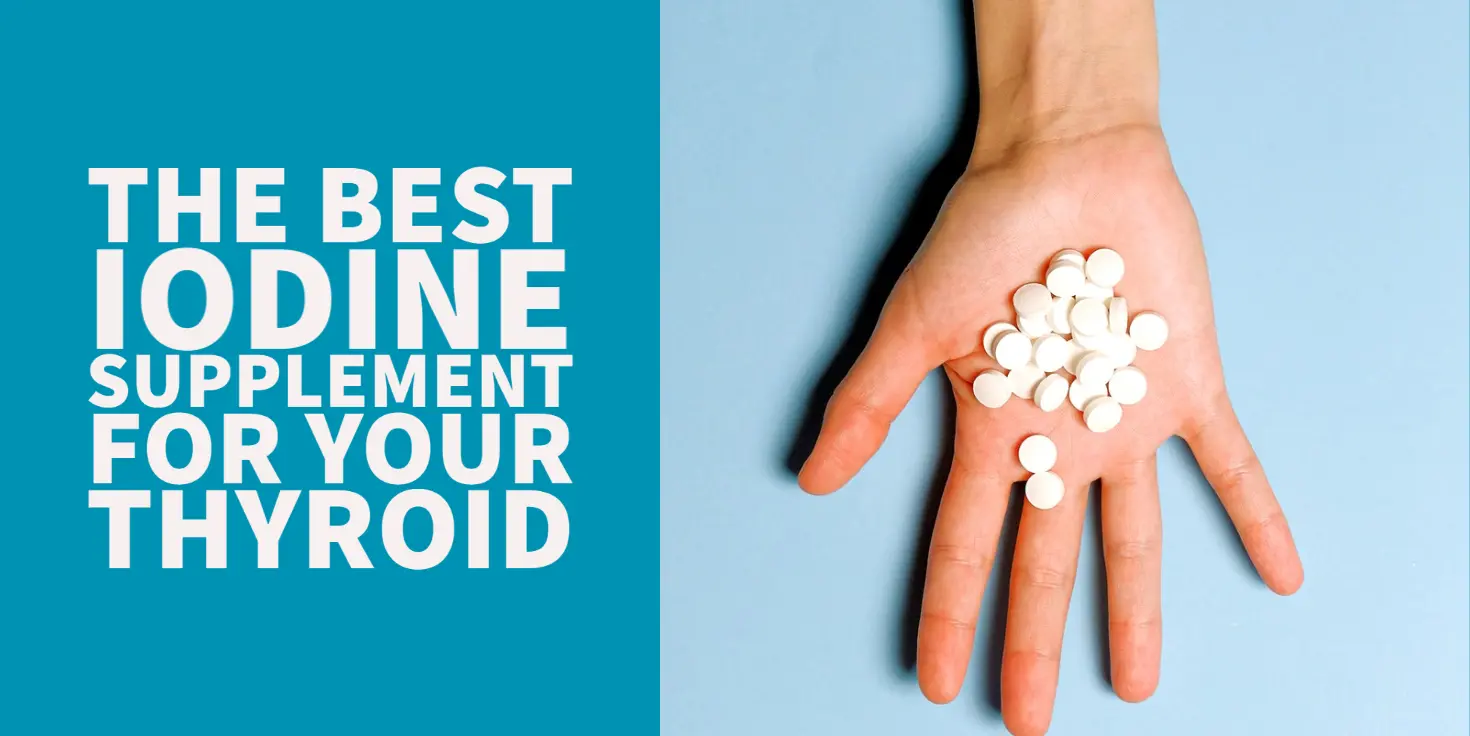Is it true that taking the over-the-counter supplement biotin can interfere with your thyroid lab tests?
The answer is yes.
But there’s a lot more to it than that.
In this article, we are going to explore whether taking biotin is safe if you have thyroid problems, how it impacts your thyroid lab tests, what to do if you are taking biotin, and your next steps.
TLDR version:
Biotin negatively impacts thyroid lab tests and may cause falsely elevated numbers. Biotin does NOT, however, directly alter your thyroid function so even though your numbers may be high your symptoms will not match your lab tests.
Biotin Does Interfere with Thyroid Lab Tests
There have been numerous studies and case reports (1) lately that confirm that the over-the-counter supplement biotin can negatively interfere with your thyroid lab tests.
But what does this mean and is it even important?
It is important and it definitely matters but, like everything, it requires some more explanation.
Biotin interferes with thyroid lab tests in the following ways:
- It causes falsely HIGH free T3 and free T4 lab tests
- It causes lower TSH levels.
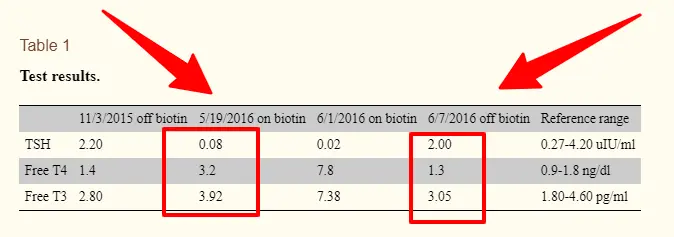
The image above contains thyroid lab tests from a patient both on and off biotin.
You can see that this patient’s TSH is as high as 2.0 uIU/ml off of biotin and as low as 0.08 uIU/ml when taking biotin.
You can also see the changes to both free T3 and free T4 levels which are all falsely elevated at the same time (I talk more about why this is an issue below).
But it’s very important to understand the difference between interference of your thyroid lab tests and actual changes in your thyroid function.
Biotin interferes with the lab test but has no negative impact on thyroid function itself.
This is important so I want to repeat it.
Biotin does NOT negatively alter your thyroid levels directly. It only makes the tests inaccurate and it makes it appear that there are changes to your thyroid levels.
I’ve noticed that some thyroid patients have suggested that other thyroid patients do not take biotin for this reason and I do not believe that this is the right way of looking at it.
I suspect that these people falsely believe that biotin is causing changes to their thyroid levels and not to the tests themselves.
They probably don’t understand that you can change your thyroid lab TESTS without actually changing the thyroid levels in your body.
Biotin does this exact thing by interfering with the testing assay that doctors use to test thyroid blood levels.
The problem is that many testing assays contain biotin-streptavidin (2) to capture thyroid hormones in your blood.
This combination also attracts biotin which may be floating around in your bloodstream, much like thyroid hormone, and stick to the assay causing a problem.
If biotin attaches to the biotin-streptavidin complex then it will look like your levels are higher than they really are.
The good news is that even though this is a known problem the solution is actually quite easy to follow.
All you need to do, as a patient, is simply avoid taking biotin for 2-3 days BEFORE your thyroid lab tests.
This will allow the biotin levels in your bloodstream to metabolize down to levels that do not interfere with the tests.
Easy enough?
I hope so, and this is what I recommend for ALL thyroid patients who take biotin.
The only problem is that many of you probably don’t even realize you are taking biotin and, even if you do know you are taking it, you may not realize that it affects your thyroid lab tests!
Thus the importance of this article.
How it can be dangerous
For the most part, I think that the attention that biotin receives and how it impacts your thyroid lab tests is largely overblown.
But that doesn’t mean that there are some potential dangers associated with biotin use.
Perhaps the most concerning potential thing that could happen would be a misdiagnosis or a mischaracterization of thyroid status in the body upon tests that are influenced heavily by biotin interference.
This could theoretically become an issue that may cause both stress and anxiety for some patients.
How would this happen?
Well, remember that biotin interferes with the testing assay (it does NOT interfere with thyroid function).
The interference tends to cause abnormally high readings of thyroid lab tests, especially high levels of both free T4 and free T3.
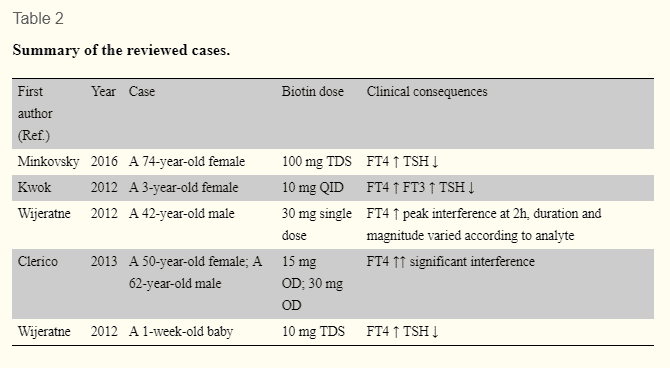
It would be plausible then, that doctors who are not very knowledgeable about biotin and how it influences your lab tests may make adjustments based off of these false readings (3).
For hypothyroid patients this is concerning because this population is often already undertreated, to begin with!
The last thing you would want to do is give your doctor another reason to reduce your dose of thyroid medication which is probably not high enough, to begin with.
If your doctor reduces your dose based on the false premise that your thyroid lab tests are elevated then you will most likely experience WORSENING symptoms of hypothyroidism.
That means things like more hair loss (which is probably the reason you started taking biotin), more fatigue, more weight gain, and so on.
As a thyroid patient, you should be very sensitive to the fact that biotin alters your thyroid lab tests because you may have to advocate for yourself in your doctor’s visits.
For patients who don’t have hypothyroidism, this could also be a big deal because it may cause doctors to falsely believe that you have hyperthyroidism.
If you are someone who has abnormally elevated high free T3 and high free T4 with a normal or semi-low TSH, you are primed to be labeled as hyperthyroid.
The last thing you would want to have happen to you as a patient is to artificially suppress thyroid function unless it is absolutely necessary.
I suspect that there are many individuals out there, perhaps even those who are reading this, who fall into this category.
These patients may spend the next several months to years worrying about their thyroid unnecessarily, simply because their doctor doesn’t understand how biotin impacts thyroid lab tests.
Why it probably isn’t that big of a deal
As a thyroid patient, as long as you are aware of how biotin interferes with your lab tests then taking it really shouldn’t be an issue.
Especially when you consider that all you need to do is simply avoid taking biotin for 2-3 days prior to your lab tests (4) to ensure that it is NOT interfering.
I think it’s important to understand this because there are a lot of potential benefits that can come from using biotin, especially for a thyroid patient.
The amount of biotin that you are taking also plays an important role in whether or not you should avoid taking it prior to your lab tests.
Most multivitamins contain biotin but in much smaller doses than those found in typical hair, skin, and nail supplements.
For instance, biotin found in my thyroid multivitamin is dosed at 500mcg per serving.
Whereas my recommended thyroid hair, skin, and nails supplement contains 5,000mcg of biotin which represents a much higher percentage of the RDA (5) compared to the 500mcg dose.
You will probably find this trend to be true in other formulations of both multivitamins and specific hair, skin, and nail supplements.

Multivitamins contain smaller amounts of biotin whereas specific hair, skin, and nail supplements contain much more.
This is important to you as a thyroid patient because you may be unknowingly taking biotin.
The good news is that low doses, the 100-300mcg range, probably do not impact your thyroid lab tests that severely.
But, there have been no studies to suggest what a “safe” dose of biotin is which does not impact your thyroid lab tests so my recommendation is to stop ALL forms of biotin 2-3 days prior to your lab draw.
It’s better to be safe than sorry, especially with the other difficulties that thyroid patients face.
Hair loss, Biotin, and Thyroid Patients
Can you, or should you, take biotin as a thyroid patient?
We’ve been discussing how biotin can impact your lab tests but we haven’t really discussed why thyroid patients are likely to be taking this nutrient.
The reason is simple:
Biotin plays an important role in the hair growth cycle and MANY thyroid patients suffer from hair loss, even when taking thyroid medication.
And, as it turns out, this is probably, at least partially, related to the micronutrient status in their body.
Biotin, an important vitamin, is one of many important vitamins and co-factors that are required for normal hair growth.
If you are deficient in any of these nutrients then you may experience hair loss, hair fall, or hair that is slow to grow.
All of these are big issues for thyroid patients who also tend to suffer from under-treatment of their own thyroid medication which is itself another risk factor for hair loss.
Hypothyroidism also predisposes people to develop micronutrient deficiencies because of the important role that it plays in their stomach.
Low thyroid levels can impact micronutrient absorption and increase your risk of developing gut-related issues such as IBS or SIBO.
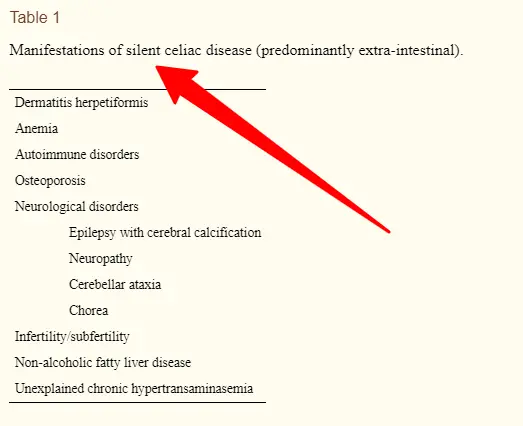
In addition, patients with Hashimoto’s (an autoimmune disease of the thyroid gland) also have a higher risk of developing Celiac disease (6) which can also limit the absorption of macromolecules and micronutrients.
All of these factors can potentially impact your hair growth.
It’s no wonder why, then, many thyroid patients look to biotin for help.
But does it work?
The answer is that it has the potential to work (7) but that doesn’t guarantee that it will work.
Many thyroid patients do find benefit, though, which is why I often recommend it (in addition to other therapies) to help with hair loss.
My personal recommendation is to combine biotin with other important co-factors such as selenium, zinc, choline, and B12 (8).
By combining these therapies together you will have the best chance of improving your hair quality.
If you do decide to take biotin, ensure that you take a good supplement, such as this one, and ensure that you avoid taking it 2-3 days prior to any blood draws related to your thyroid.
What should you do?
As a thyroid patient, you should be acutely aware of the fact that biotin impacts your thyroid lab tests.
This is true even if you aren’t knowingly taking biotin.
Why?
Because only about 30% of people taking biotin realize that they are taking it (9).
Think about it.
How many supplements are you taking right now? Are you aware of the ingredients in every single one of those supplements?
Some supplements, such as the ones that I offer, contain upwards of 15 ingredients.
While the ingredients are not always at their maximum dose, they can still cause minor interference with testing assays and may impact your lab tests.
My recommendation to you, as a patient, is to be aware of everything that you are putting in your body.
Pay attention to your supplements and look for any extra biotin.
You should also have a knowledge of how biotin impacts your lab tests so that you can inform your doctor.
If a thyroid lab test comes back abnormal, and if you are taking any supplement, don’t automatically assume that the problem is your thyroid.
Think first about other factors such as the supplements you are taking, whether or not they contain biotin, and simply re-test in a few weeks.
This retesting phase may prevent a lot of unnecessary stress and changes to your thyroid medication (which is not ideal unless absolutely necessary).
Conclusion
There is no question whether or not biotin can artificially interfere with normal thyroid lab tests.
The degree to which it interferes with these lab tests and whether or not you should take it, however, are both important questions.
My opinion is that it is possible to take biotin and avoid any potential issues by being thoughtful about when you take it and when you get your blood drawn.
As a thyroid patient, I don’t think you should be scared of this nutrient but instead should have a healthy understanding of how it works and how it impacts your lab tests.
But now I want to hear from you:
Are you currently taking biotin?
Has it ever interfered with your thyroid lab tests?
Do you suspect that this has happened without you knowing or realizing it?
Is biotin working to help improve your hair loss?
Leave your questions or comments below!
Scientific References
#1. https://www.ncbi.nlm.nih.gov/pmc/articles/PMC6103391/
#2. https://endocrinenews.endocrine.org/january-2016-thyroid-month-beware-of-biotin/
#3. https://www.ncbi.nlm.nih.gov/pubmed/30199718
#4. https://www.ncbi.nlm.nih.gov/pubmed/29856977
#5. https://ods.od.nih.gov/factsheets/Biotin-HealthProfessional/
#6. https://www.ncbi.nlm.nih.gov/pmc/articles/PMC2111403/
#7. https://www.ncbi.nlm.nih.gov/pubmed/28879195
#8. https://www.ncbi.nlm.nih.gov/pmc/articles/PMC6380979/
#9. https://www.thyroid.org/patient-thyroid-information/ct-for-patients/december-2018/vol-11-issue-12-p-3-4/
